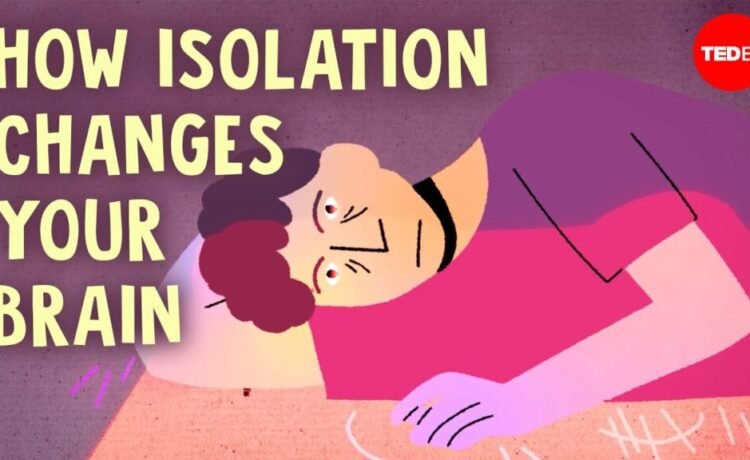To many of us, the concept of solitary confinement may not sound all that bad: finally, a reprieve from the siege of social and professional requests. Finally, a chance to catch up on all the reading we’ve been meaning to do. Finally, an environment conducive to this meditation thing about whose benefits we’ve heard so much. (Perhaps we made those very assurances to ourselves when the COVID-19 pandemic set in.) But according to the animated TED-Ed lesson above, written by psychiatrist and correctional mental health expert Terry Kupers, the negatives of the experience would well outweigh the positives. It all comes by way of answering the question, “What happens to your brain without any social contact?”
Unsurprisingly, perhaps, isolation takes its greatest toll when imposed against the will of the isolated, and even more so when imposed for an indefinite duration. “Early on, stress hormones may spike, and as time passes, that stress can become chronic,” says the video’s narrator.
Without the availability of social interactions as “a sounding board where we can gauge how rational our perceptions are,” one’s “sense of identity and reality becomes threatened.” The stage is therefore set for “depression, obsessions, suicidal ideation, and, for some, delusions and hallucinations.” Sleeping difficulties can manifest on the more strictly physical end, potentially accompanied by “heart palpitations, headaches, dizziness, and hypersensitivity.”
While traveling in the United States, Charles Dickens bore witness to the punishment by solitary confinement already in effect in American prisons, coming away with the impression that it was “worse than any torture of the body.” He wrote that after a visit to a Philadelphia penitentiary, whose very name reflects the theory, held by the Quaker groups who introduced the practice in the late eighteenth century, that it could “bring about reflection and penitence.” After much research on the matter, Kupers has come to the conclusion that, in fact, it “does immense damage that is contrary to rehabilitation, while failing to reduce prison violence.” If you’re reading this, you may not be especially likely to be sentenced to involuntary confinement. But the next time you start feeling out of sorts for reasons you can’t pin down, consider how long it’s been since you’ve spent real time with real people.
Related content:
What Happens When You Spend Weeks, Months, or Years in Solitary Confinement
How Loneliness Is Killing Us: A Primer from Harvard Psychiatrist & Zen Priest Robert Waldinger
Modern Art Was Used As a Torture Technique in Prison Cells During the Spanish Civil War
What an 85-Year-Long Harvard Study Says Is the Real Key to Happiness
On the Power of Teaching Philosophy in Prisons
Based in Seoul, Colin Marshall writes and broadcasts on cities, language, and culture. His projects include the Substack newsletter Books on Cities and the book The Stateless City: a Walk through 21st-Century Los Angeles. Follow him on the social network formerly known as Twitter at @colinmarshall.















